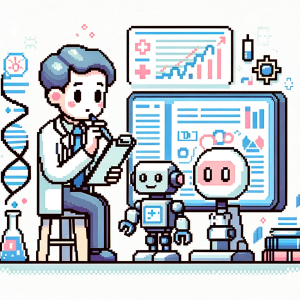
Is AI the Future of Mental Healthcare? Unraveling the Promises and Perils
Welcome to an intriguing exploration of a pivotal question in modern healthcare: Is AI the Future of Mental Healthcare?. This article from Topoi delves into the evolving role of artificial intelligence (AI) in mental health, offering a nuanced perspective on its potential to revolutionize the field.
AI in Healthcare: More Than Meets the Eye
AI’s integration into various professional fields has been nothing short of transformative. From robotic grocery delivery to AI-assisted surgery, its capabilities continue to expand. In healthcare, particularly in diagnosis and treatment, AI’s prowess is increasingly evident. It excels in pattern recognition and data analysis, offering insights beyond human capability. This efficiency and effectiveness raise a crucial question: Could AI redefine mental healthcare?
The Promise of AI in Mental Healthcare
The demand for healthcare is rising, but resources remain limited. AI offers a beacon of hope, promising to enhance healthcare delivery and make it more cost-effective. Studies have already shown AI’s superiority in diagnosing skin cancers and diabetic retinopathy. Its potential in mental healthcare, however, is a relatively new frontier.
1. Mental Healthcare and AI: A New Approach
Traditional mental healthcare, often characterized by one-on-one human interaction, faces challenges in accessibility and effectiveness. AI, though devoid of emotions and consciousness, could provide innovative solutions. Its ability to process vast datasets and identify patterns could be instrumental in diagnosing and treating mental illnesses.
2. AI’s Role in Diagnostics and Treatment
AI’s applications range from digital phenotyping to natural language processing and chatbots. These tools can monitor behavioral changes, analyze speech patterns, and offer therapeutic suggestions, potentially revolutionizing mental healthcare delivery.
3. Addressing the Challenges of Mental Health
The increasing prevalence of mental health issues worldwide, coupled with a shortage of healthcare professionals, poses a significant challenge. AI’s ability to extend care to larger populations, especially in resource-limited settings, is a game-changer.
Human Considerations
As AI finds its place in mental health treatments, it introduces a tapestry of ethical dilemmas. A primary concern centers around the potential erosion of the human element in therapeutic care. In traditional therapy, empathy and trust are the cornerstones of the therapist-patient relationship. The integration of AI poses questions about maintaining these critical human aspects in a technology-driven environment. This issue is especially pertinent in areas like psychiatry, where treatment success often relies heavily on human empathy and understanding. The debate over the role and effectiveness of AI in such sensitive areas of healthcare remains active and evolving.
Yet, there can be promising practices, like below.
1. AI in Early Detection: Awareness and Stigma
AI holds potential as a tool for early intervention in mental health conditions. Its capacity to analyze behavioral patterns and communication could be key in identifying mental health issues at an early stage, especially in individuals who may not recognize their own symptoms or who face societal stigma around mental health. By offering discreet monitoring, AI could encourage these individuals to seek professional help sooner.
2. AI as an Alternative in Therapy
AI could present a less intimidating alternative for those who struggle with personal interactions, such as individuals with depression or autism. By facilitating remote and less direct forms of communication, AI-based tools might provide a more accessible form of therapy for those who find face-to-face sessions overwhelming or challenging.
3. Tackling the Shortage of Mental Health Professionals
The shortage of mental health professionals is a critical global issue. AI’s potential in supplementing the workforce—assisting in diagnosis, monitoring, and even therapy—can play a pivotal role in addressing this gap. Its scalability and accessibility could bring mental healthcare to regions and populations currently underserved, though it is crucial that this technological aid does not replace the essential human touch in therapy.
Conclusion
The future of AI in mental healthcare is a complex yet promising landscape. While it offers remarkable potential in enhancing care and accessibility, it also raises critical ethical and philosophical questions. The balance between technological advancement and maintaining the human essence of care will be pivotal in shaping the future of mental healthcare.
Lead the Way in Public Health – Get Your Weekly Insight!
Ready to lead the charge in health advocacy and research? ‘This Week in Public Health’ delivers essential weekly updates, keeping you informed and ahead in the dynamic field of public health. With insights on the latest breakthroughs and initiatives, our newsletter is your gateway to being a proactive leader. Subscribe for free and start shaping the future of public health today!



